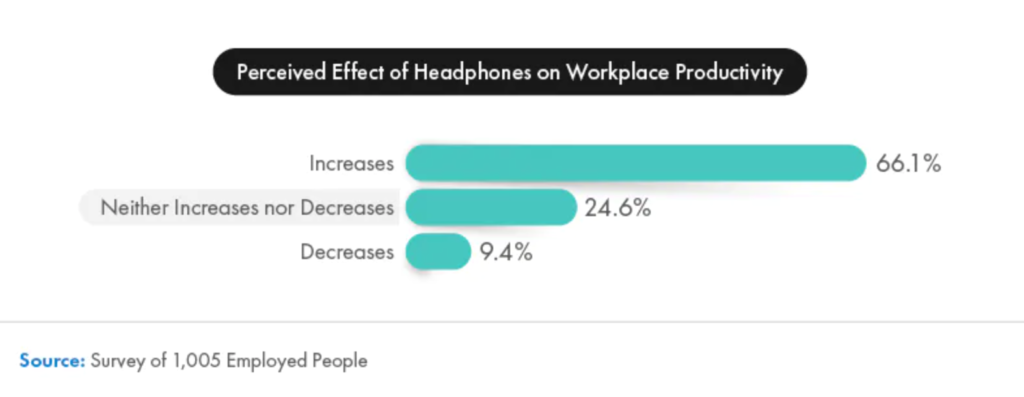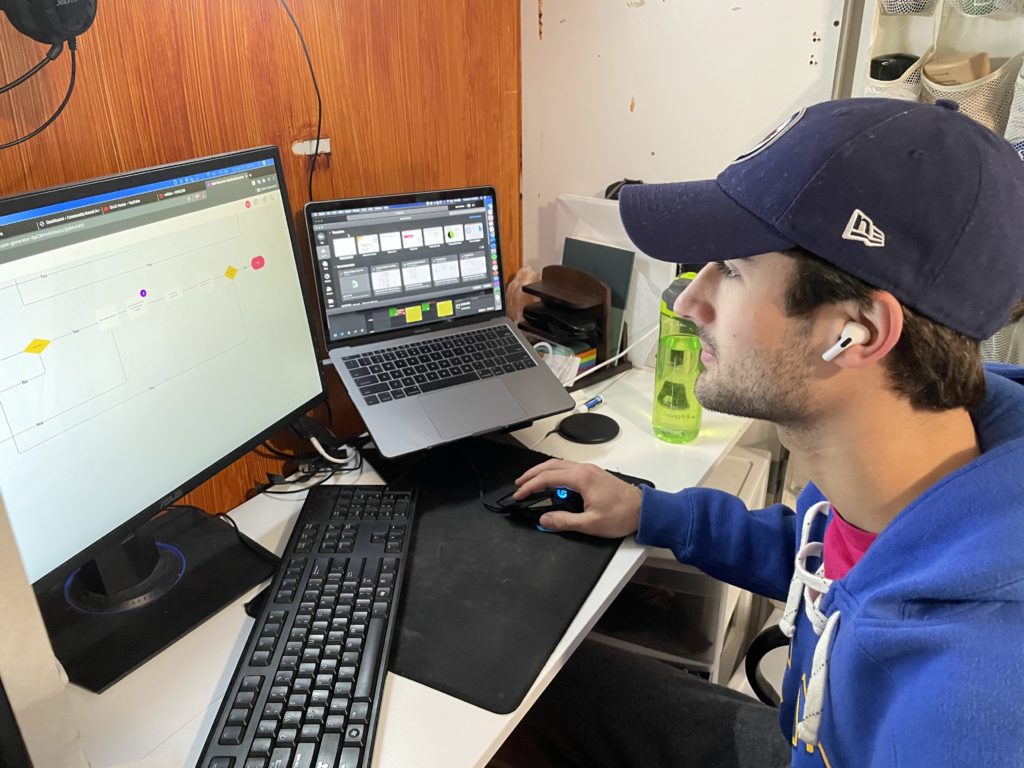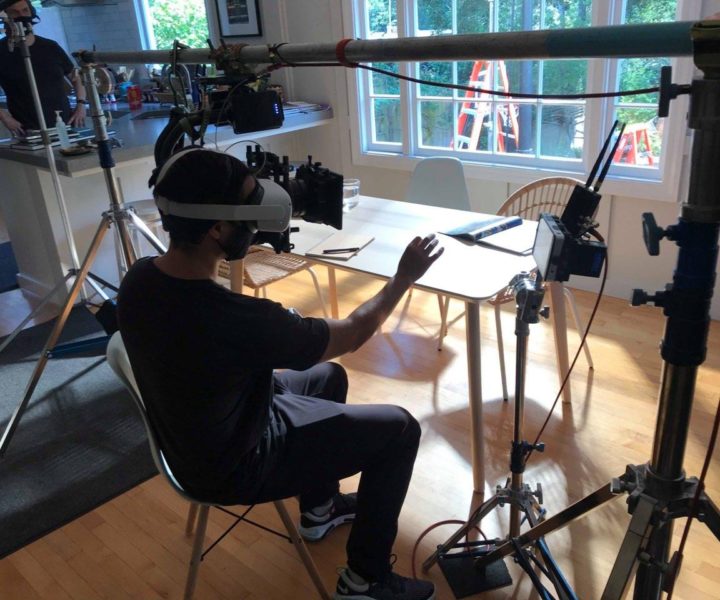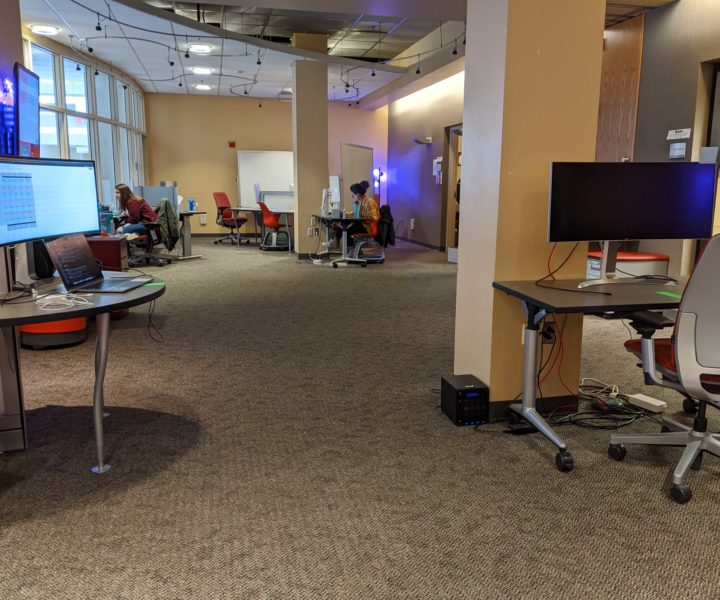Imagine walking into your office, sitting down, and having a nice cup of coffee, when suddenly, you hear your coworkers having a conversation. You ignore it at first, but as the day goes on, more distractions come your way. First, it’s a conversation, then, it’s constant phone ringing and buzzing, and finally, it’s the construction guys working in the office above yours. You’ve got deadlines to finish, so you pop in some headphones, focus, and get to work.
According to the 3D Insider in 2018, the revenue of the headphone industry rose 1.3% reaching to $3.94 billion—that’s a lot of cash. While most of us attribute headphones to listening to music and gaming, there’s another category where headphone usage fits: in the workplace. Working in an office and, more recently, remotely, can pose a multitude of distractions for people who need to focus. Headphones are a common solution! We know headphones are a useful tool to tune out the hectic work environment, but can they increase our overall work productivity?
As Digital Corps students work in and out of the office, headphones are a typical accessory. In an office that is highly collaborative and energetic, do those who use headphones see an impact on their own productivity while working?

Productivity
A CloudCover Music study of over 1,000 employees and employers found that 56% of employees extensively use headphones in the office. Headphones can serve a variety of functions but are especially effective in increasing productivity. At the Digital Corps, students are not exempt from distractions. From coworkers chatting to students and tour groups walking around in the hallway outside the office, it’s not hard to lose focus in the office. Remote work also poses challenges for students. For some Digital Corps members, a shared dorm room, loud dining halls, and furry friends can pose more distraction outside of the office environment.

For Video Apprentice Cami Beteet, wearing headphones during work is a normal part of the day. “Wearing headphones helps me feel more productive… headphones can make people feel more concentrated,” Beteet says.

For UX Graduate Assistant Jolee Edge, headphones keep her focused during work. Remote work can be even more distracting than in-office work, because the temptations of TVs, snack breaks, and sweatpants pull people out of “the zone.” Edge says she is “Definitely more concentrated because I can more easily drown out my surroundings” during her remote work time while using headphones.

The study above also found that around two-thirds of workers feel headphones increase workplace productivity. As more people, including Digital Corps students, use headphones during work, it begs the question, what are some other benefits to using headphones while working?
Other Benefits to Headphones

Headphones can provide more benefits than just increasing productivity. First, headphones can be great for noise cancellation. Kip Sprout, UX Apprentice, uses his noise cancelling headphones when he really needs to dial in on a project. “I wear headphones so people don’t bug me while I’m working…,” Sprout says, “It depends on if I’m working on something intensive that I need to focus on…” Using these headphones proves to be good at eliminating distracting and potentially harmful background noise.

Another benefit to headphones is their ability to trigger pure focus. For Video Team Apprentice Maddie Rambissoon, headphones naturally allow her to focus more. “Before remote work, sometimes the office got a bit too loud and it was hard to concentrate, so headphones gave me a bit of a block from the talking so I could work more efficiently. Even if I’m not listening to anything, [headphones] help my brain focus better.”
While there are many benefits to headphones, one question remains: What are people listening to? The common answer amongst Digital Corps members was music, and while some genres may be distracting for some, pop, lo-fi, and even classical were among the most listened to genres. Along with music, things like podcasts and even white noise are listened to while working with headphones.
Importance During Remote Work
When the world fell under lockdown last March, no one really knew what to expect, especially when it came to work. For the Digital Corps, we quickly adapted to a remote setting throughout the rest of the Spring semester, the Summer, and into the new academic year. Most work at the Digital Corps is now done remotely, meaning that we are now connected via Zoom or Slack rather than across the room from one another. Remote work was a foreign concept for many students, and some struggled to find productive working location in between classes and other in-person activities. From sitting in noisy dining halls to enduring a roommate’s online class, remote work poses distractions.
“…I’ll sometimes receive random Slack calls or notifications and feel the need to check them right away, which can sometimes deter me from the work I was doing” Beteet says. But with her headphones at the ready, Beteet can focus on her projects easily and without crazy distractions.
Jolee Edge also struggles with a relevant distraction—being online. “Normally, the biggest distraction [in office] could be interacting with other students, but now it’s more so social media…” she says. Everything has been at our fingertips for quite some time, but with remote work, there’s no longer the accountability of an office setting to help guide your focus. Edge also notes that headphone usage keeps her more focused than not during remote work.
Listen Up
Headphone usage during work positively impacts productivity, helps workers feel more focused, and makes the transition to remote work easier. For some, listening to music can help, and while not all genres feel productive, listening to your favorite podcasts or even white noise can help you stay attentive and dedicated to your work. Headphones provide another outlet for fun in the workplace: music. Even the traditional usage of headphones can increase connections between coworkers and their employers.

Headphones, whether working in or out of office, are becoming an essential part of our workday. As we move further and further into the digital age, headphones have turned into necessity in the workplace. So instead of hearing that coworker’s conversation across the office, phones ringing on desks, and, yes, even those lovely construction guys in the office above yours, pop in some headphones, take a deep breath, and get your brain to work.



